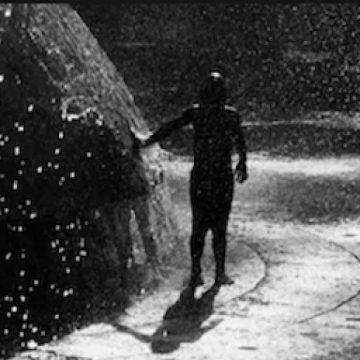Jesse McCarthy in the Los Angeles Review of Books:
 The memoirs of Black revolutionaries have been, almost by definition, exceptional in their narratives, exemplary in their aspirations, and dispirited in their conclusions. Traditionally, the disappointment of unfinished and unrealized ambitions is mitigated by a rhetorical appeal to continued struggle and hope for a future Black liberation that the memoirists themselves will not live to see. They look to the future to say: One day. In time we will find our way to freedom, equality, self-loving, and self-respecting — to fully enjoying whatever the best of the human condition ought to entail. But what if the condition of being human is so thoroughly racialized that even appealing to it only further distances them from the possibility of its realization? What if, moreover, the destruction of Black people is not a contingent difficulty that can be corrected, but a necessary fate because the very category of “the human” is premised on their negation? As Frank Wilderson puts it, what if “Human life is dependent on Black death for its existence and for its conceptual coherence”?
The memoirs of Black revolutionaries have been, almost by definition, exceptional in their narratives, exemplary in their aspirations, and dispirited in their conclusions. Traditionally, the disappointment of unfinished and unrealized ambitions is mitigated by a rhetorical appeal to continued struggle and hope for a future Black liberation that the memoirists themselves will not live to see. They look to the future to say: One day. In time we will find our way to freedom, equality, self-loving, and self-respecting — to fully enjoying whatever the best of the human condition ought to entail. But what if the condition of being human is so thoroughly racialized that even appealing to it only further distances them from the possibility of its realization? What if, moreover, the destruction of Black people is not a contingent difficulty that can be corrected, but a necessary fate because the very category of “the human” is premised on their negation? As Frank Wilderson puts it, what if “Human life is dependent on Black death for its existence and for its conceptual coherence”?
Understanding how Wilderson has come to such a conclusion requires a glance at his own exceptionally restless and revolutionary life.
More here.
